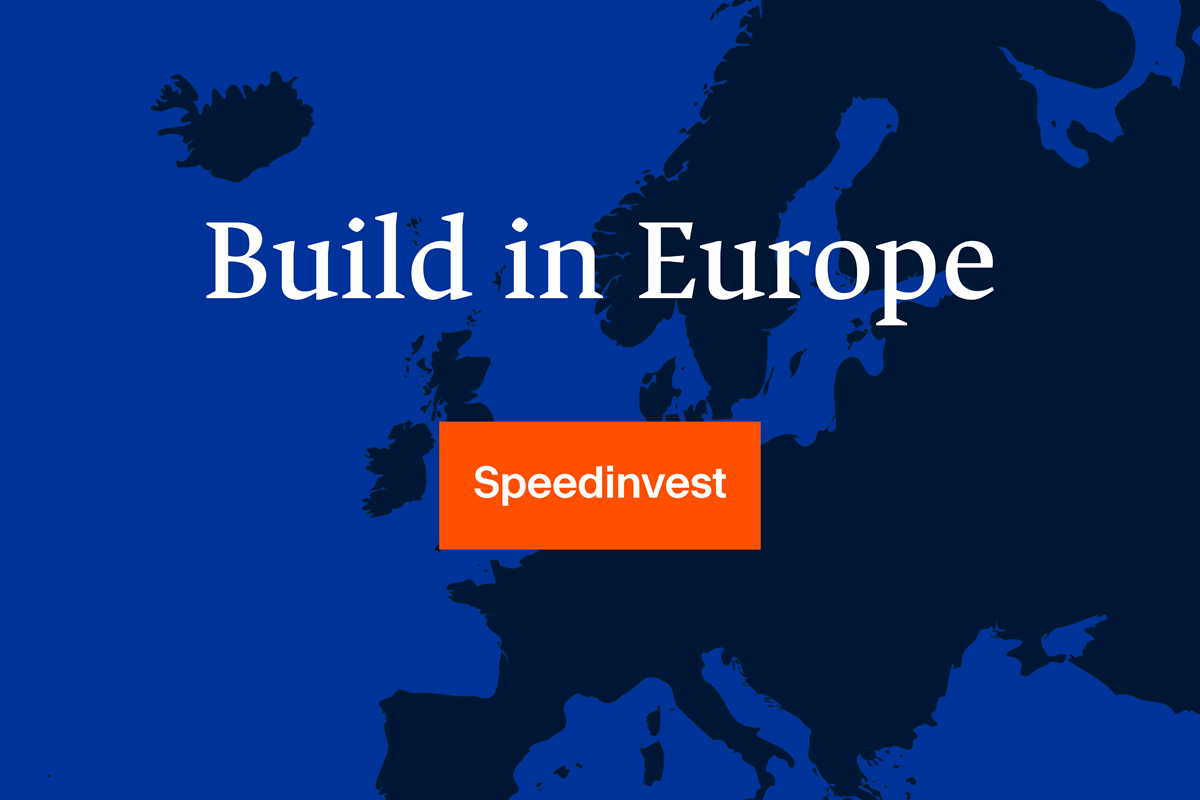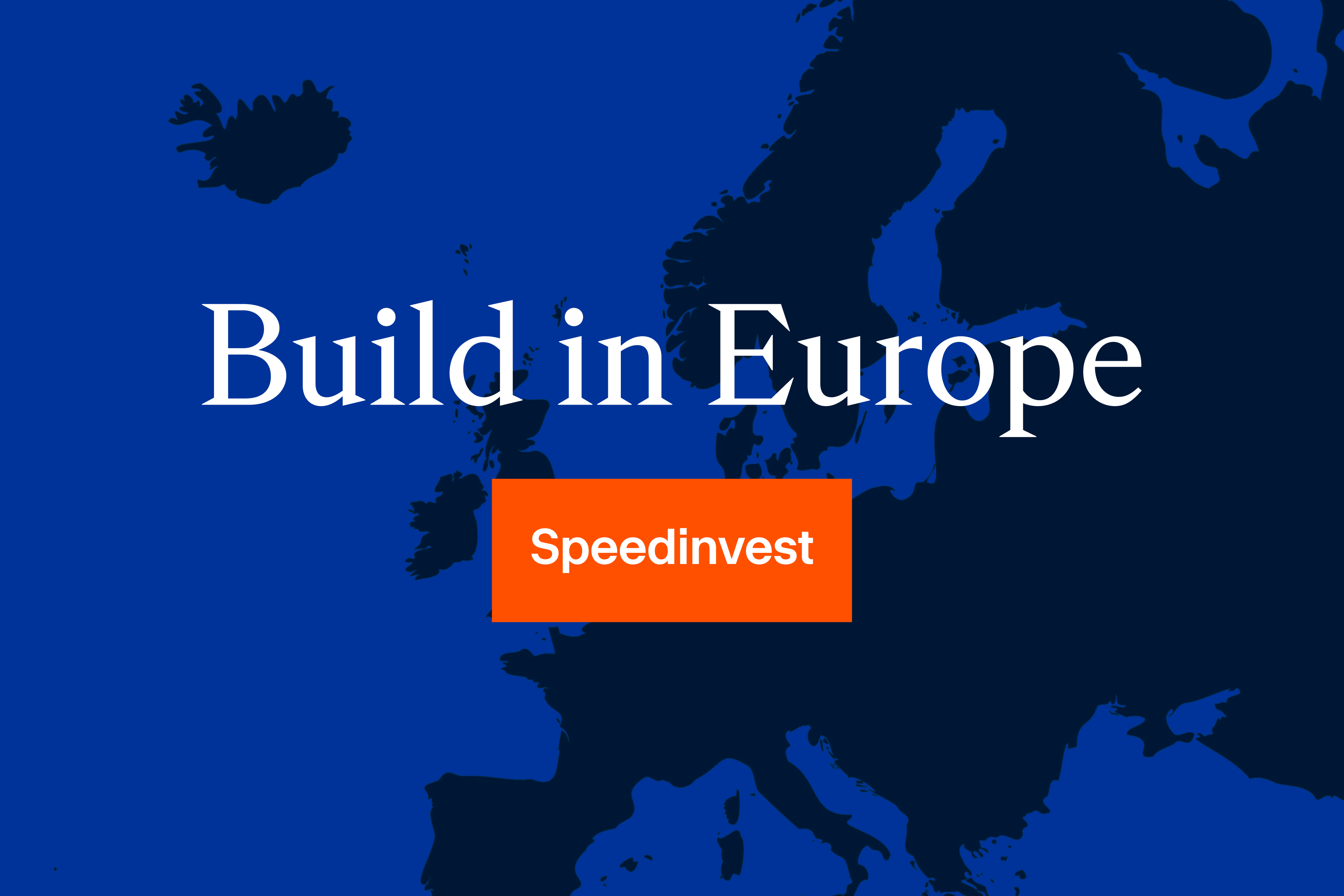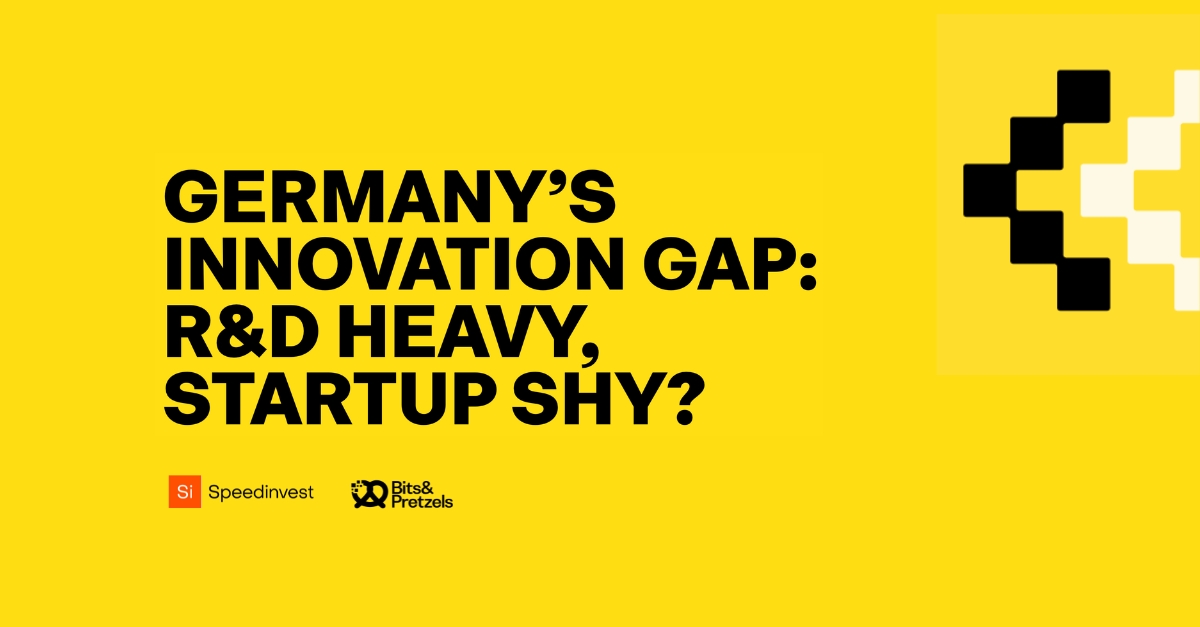Europe stands at a crossroads in an era of technological disruption and geopolitical instability. Beneath the weight of legacy institutions and cobblestone charm lies one of the world’s most dynamic but underleveraged innovation ecosystems.
Europe boasts world-class universities, deep scientific expertise, and ambitious founders. Yet, it continues to underperform in scaling startups, attracting top global talent, and leading in frontier technologies like AI, defense, and deep tech.
Sound familiar?
We know we’re not the first to point this out, but recent geopolitical and market turmoil has made voices on this subject louder than ever. If we’re being honest, this is a drum that has been beaten repeatedly for years – everyone knows the problems the ecosystem faces, and yet, Europe-wide solutions that address these issues continue to be difficult to come by.
We welcome a €500 million fund from the EU designed to make Europe a magnet for researchers, but in general, a more concerted effort is required.
The increase in volume, both from the ecosystem and EU leaders, comes at a unique time. Where previously talk was cheap, momentum is now building for action, not just words. As demonstrated by new proposals from France, Austria, the UK, and the EU at large.
So that’s our pitch, a call to action. To strike while the iron is hot, and when hearts and minds are more focused than ever on European innovation, self-sufficiency, and ultimately, excellence.
At Speedinvest, we’re proud to announce the launch of Build in Europe, a series of deep-dive reports focused on shaping a tech future on our terms. A future where capital flows freely, talent is welcomed, and bold ventures define the next global decade.
Through this content series, tackling key topics crucial to Europe’s tech future, we will showcase a vision for where the continent is headed next. We’ll be speaking to industry leaders, experts, top founders, politicians, policymakers, and thought leaders as we look to push the agenda forward to bring about lasting change for European tech.
Our mission is simple:
Turn Europe into a global powerhouse for building, scaling, and funding world-class innovation.
This series explains why and how, from startup visas to semiconductors, sovereign defense to agentic AI. It’s a call to founders, policymakers, LPs, and operators: the future is unwritten. Let’s build it here.
“The next decade of innovation is up for grabs. If we want Europe to lead, we have to stop admiring the problem and start building solutions at scale. We don’t lack ambition, but rather need the talent, capital, and coordination to unlock our continent’s potential to build global winners.”
– Oliver Holle, Managing Partner at Speedinvest
The Core Challenge: A Great Place to Live, a Hard Place to Build
What makes Europe culturally vibrant also creates friction for startups, and fragmentation continues to hold back the continent’s innovation economy.
Different languages, customs, and ways of living make our continent a veritable smorgasbord across a small land mass, which prevents innovation by adding administrative headroom to fast-growing businesses looking to expand into new markets.
We need a new playbook, one that enables speed, scale, and frictionless movement for ambitious entrepreneurs.
That’s why we are frequent collaborators with policymakers, tech leaders, and other industry stakeholders at leading events from Brussels to Berlin, pushing for improved access to talent, more capital markets integration, and greater benefits for founders.
Because we believe 3 core pillars of opportunity could unlock Europe's position as a global leader, namely:
Talent: Win the Global Race for Minds
Talent is the currency of innovation, yet Europe treats it like a regulatory afterthought. For all our strengths, world-class universities, open societies, and quality of life, we lag in creating an ecosystem where the world’s top minds can move freely, build quickly, and stay long-term.
The US has long been a magnet for the brightest and best, but with increasing uncertainty about the country’s commitment to academic and even personal freedoms, researchers, founders, academics, and engineers should be welcomed to Europe as a new home for innovation and growth.
Build in Europe was born out of a desire to showcase the opportunity available for technical minds to work in an environment that is open and free. In announcing new initiatives for Europe to attract scientific and research talent, EU Commissioner Ursula von der Leyen said, “We have to make it easier and more attractive to come to Europe for research.” The key is providing concrete avenues to do this.
What we need is a European-wide framework that makes it radically easier to hire, relocate, and retain the world’s top technical talent:
- Create a unified European Startup Tech Visa: Fast, flexible, and accessible across EU member states, not just for founders, but for builders, operators, and researchers.
- Streamline high-skill pathways: Specialized tracks for AI engineers, deep tech scientists, and software talent are essential. The competition for these roles is global, and Europe must play to win.
- Make Academia great in Europe: Bringing scientists, researchers, and academics to Europe is crucial to ensuring innovation thrives. Making funding available, but also reducing bureaucratic hurdles, is paramount. Institutions and governments need to work together to provide funding to make this a reality.
- Improve stock option transparency: Founders can’t attract top-tier teams when employee stock options are overtaxed and under-incentivized. Every country in the EU has different tax treatment for employee equity, which makes it hard for startups to compete with their US counterparts and creates legal overhead.
- Operational visa support: Early-stage startups need more than just policy; they need execution support, including one-stop platforms for hiring foreign talent and clear guidelines from immigration authorities.
Today, visa ambiguity and bureaucracy are competitive liabilities. Tomorrow, they could be Europe’s unfair advantage, if we act now.
Capital: Fund the Future at Scale
Europe is home to some of the world’s most promising technical talent and scientific research, yet we consistently underinvest in scaling the outcomes.
Particularly in R&D-heavy sectors like AI, defense, and deep tech, capital formation remains sluggish. Europe invests up to 3x less per capita in late-stage VC than the US and allocates a minuscule 0.2% of pension assets to venture.
These figures are not just statistics, they reflect a structural inability to bet on our own future.
We don’t need marginal improvements. We need a step-change. That means deep systemic reform to unleash long-term capital and direct it toward innovation:
- Unlock institutional capital: Reforming Solvency II and IORP II would allow pension and insurance funds to allocate more capital into high-growth, high-risk ventures. We need reduced capital requirements and fewer administrative frictions so these institutions can invest in the future, not just the past.
- Scale up EIF/EIB mandates: Rather than creating new EU vehicles, we should turbocharge existing ones with clearer, mission-driven mandates focused on AI, climate tech, and biotech. Public capital must also be used to crowd in national and private co-investors, building layered funding systems that reduce risk and amplify scale.
- Complete the Capital Markets Union: Europe’s fragmented financial markets create inefficiency and duplication. A truly integrated capital market across the EU would unlock vast pools of cross-border investment and remove bottlenecks for scaling companies continent-wide.
- Anchor large-scale deep tech funds: Public institutions should take the lead in validating and anchoring deep tech and frontier funds with 15+ year horizons. Areas like semiconductors, energy storage, and healthtech require more than seed capital, they require strategic patience.
Either we fund Europe’s future, or someone else will.
Regulation: Unblock the Market
Regulation is Europe’s double-edged sword. While designed to protect, it too often inhibits scale. Across the continent, founders face overlapping national rules, inefficient tax systems, inconsistent enforcement, and outdated legal frameworks that make it harder to compete globally.
Europe must embrace regulatory clarity, consistency, and portability:
- Fix market fragmentation: Every member state has its own tax, employment, and compliance rules. Harmonising key elements of startup regulation would remove artificial borders and increase operational efficiency.
- Standardise stock option frameworks: Equity remains the primary way startups attract talent, yet cross-border inconsistencies in taxation and vesting rules create friction for distributed teams. We need a pan-European stock option regime.
- Simplify digital compliance: The AI Act and GDPR are vital, but enforcement must be predictable and consistent. The lack of clarity in rollout and interpretation is already pushing some startups to relocate.
- Modernise sector-specific licensing: Regulated startups, particularly in health, fintech, and defense, are forced to re-license in every new market. This duplication wastes time and capital and undermines pan-European scaling.
- Fix procurement: Europe’s public procurement systems are effectively closed to startups. We must open procurement pipelines for early-stage companies, particularly in health, climate, and defense.
Make Europe a single regulatory market. This is the fastest way to turn 27 fragmented innovation economies into one global competitor.
A Common Denominator: Fragmentation
The common thread is clear across capital, talent, and regulation: fragmentation is the bottleneck. It stifles capital flows, slows hiring, discourages scale, and forces founders to build elsewhere.
In 2022, Speedinvest conducted the largest survey of its kind for venture capital, speaking to hundreds of investors about their concerns about the industry. We found that:
- 87% of European VCs cite fragmentation as a major disadvantage
- 70% highlight Europe’s universities as a core strength
- 65% cite talent, and 61% IP and know-how as competitive strengths, but less than half believe the environment is ready to turn these assets into global champions
Europe has the ingredients. It lacks only the unifying frameworks to cook with them.
Forging the Frontier: Where Europe Can and Must Lead
Europe doesn’t need to chase trends, it needs to lead on the next wave of foundational technologies. The clearest opportunities lie in AI, defense, deep tech, health, and climate sectors, where Europe’s scientific strength, long-term thinking, and public-private collaboration can be true global differentiators.
AI is fast becoming the infrastructure layer across industries, not just an application. Europe must invest in sovereign compute capacity and energy-efficient data centers, support vertical AI startups in regulated industries like finance and health, and provide clear, predictable regulation through the AI Act to prevent innovation from being stifled at inception.
In defense, strategic autonomy will depend on startup-led innovation, not just legacy contractors. Similarly, dual-use procurement rules must be modernised to enable faster scaling of technologies that defend physical, digital, and cognitive infrastructure.
Europe’s deep scientific bench is unmatched, but its commercialization pathways remain narrow. In sectors like health and industrial deep tech, the continent needs mission-driven funds with patient capital, better IP transfer frameworks, and more founder-friendly research spinouts.
The climate transition, meanwhile, is more than a sustainability challenge;; it’s a strategic industrial opportunity. Europe must accelerate investment in infrastructure like gigafactories and hydrogen hubs, commercialise industrial technologies at scale, and secure its position in global green supply chains.
From AI to advanced manufacturing, Europe must not only own the science but also the startups that scale it.
What’s Next: A Series to Build With
This is just the beginning. In the coming weeks, we’ll go deeper into:
- Visa Reform & Talent in Europe: What’s Working and What’s Holding Us Back.
- Fund the Future: Why Europe Must Bet Bigger on Itself
- Unblock the Market: Turning Regulation into Europe’s Advantage
- The Next Frontiers: Where Europe Must Build to Lead
Final Word: Close the Belief Gap
Europe has the talent, research, and capital. What it lacks is alignment. Alignment between countries, institutions, and ambition.
Let’s fix that.
Let’s turn Europe from a great place to live into the best place to build.
Let’s #BuildInEurope.






